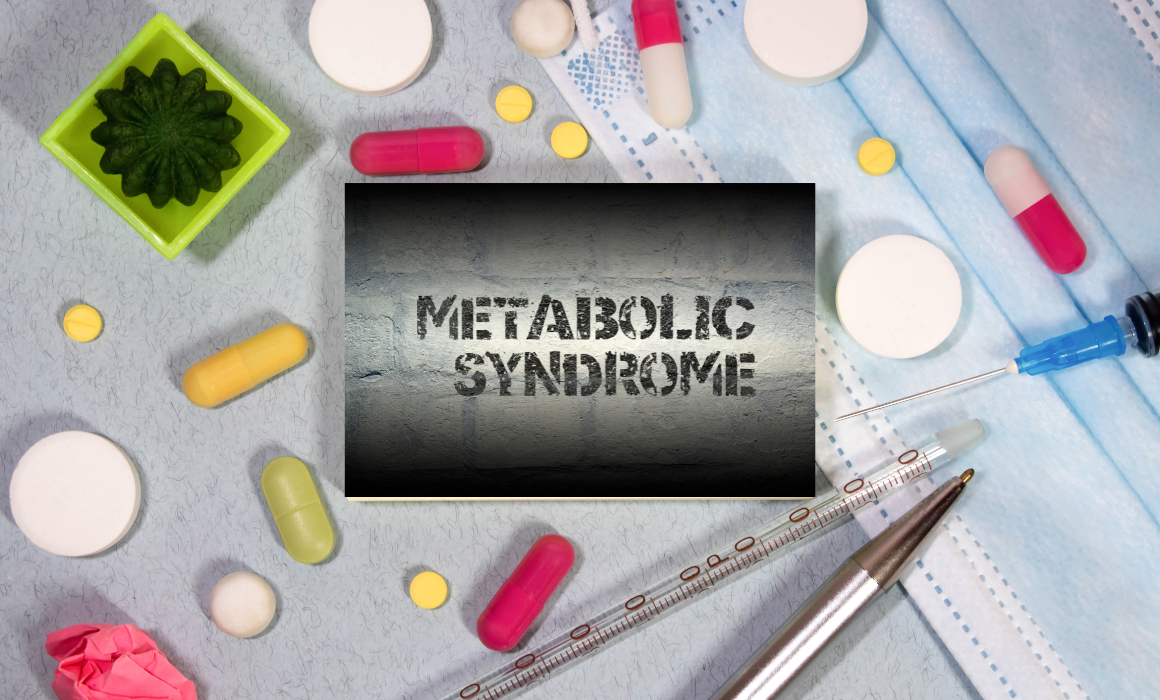Our land and history overflow with epidemics of infectious diseases, such as malaria, tuberculosis, hepatitis C and B, and many more. Almost all of these infections made it home with us and turned endemic. We had just learned to live with these fatal friends when a new, uninvited guest arrived and started ravaging our economy and health. Metabolic syndrome has already penetrated our population deep and wide, affecting all age groups and the entire social spectrum. In a sense, we are late. The metabolic eclipse has caught us unaware. I believe we are up against a mighty rival, and entirely unprepared.
Metabolic Health and Metabolic Syndrome
Before getting into the details of our metabolic crisis, we need to understand the basics of metabolic health. As its name implies, metabolic health means how healthy our body’s metabolism is, which basically depends on our body’s production and response to Insulin. Our body’s responsiveness to Insulin extends across a broad spectrum: on one side of the spectrum, our body can be very sensitive to Insulin, a good thing; on the opposite end, it can be very resistant to Insulin, a situation we call Diabetes Mellitus. In between, we have milder variants, ranging from mild insulin-resistant to pre-diabetes.
The question is what factors determine an individual’s position on the metabolic spectrum? A myriad of factors play a role, some external and some internal. Internal factors are physical and mental health; external, food and environment. A combination of these forces decides where we stand on the spectrum. I am not trying to ignore the role of genes; we will discuss them another day.
Now, what sets us up for this metabolic disaster? Three main things.
Our Unhealthy Lifestyle
We haven’t figured a way out of our epidemic and endemic infections yet, and we already find ourselves in the middle of a metabolic challenge. True, the odds of an unhealthy life are stacked against us, and our preparation?—nada. The twenty-first-century lifestyle lays landmines of unhealthy choices at every step. Reduced physical activity, lack of sleep, a lot of stress, poor dietary options—these are a few bad things that are forced upon us by our modern lifestyle.
In Pakistan, the fact that shocks me is that we are oblivious to the unhealthy nature of our daily routine. No one knows that daily exercise is essential. The poor believe that exercise is for the rich; the rich think it is for celebrities, people who have no choice but to stay in shape. Consequently, only those tend to take up doing regular exercise who cannot help avoiding it. As if being sedentary was not enough, we spice it up with unhealthy, pro-inflammatory food with every meal. And icing on the cake is our holiday attitude toward sleep: we sleep either less or more than is needed; we sleep against the natural cycle, sleeping late into the night and waking up late in the day, an extremely unhealthy routine. This is our overall attitude toward activity, food, and sleep—the comprehendible dimensions of our health. What about mental health? No one has a clue as to what mental health is, let alone how to manage it.
Regrettably, a vast majority of people in Pakistan are living their lives without any consideration for their health. They are unaware of what health truly means, and they are oblivious to the fact that they are leading extremely unhealthy lifestyles. This lack of understanding is a significant barrier to improving our collective health.
Our Attitude Toward Health Checkup
Even worse than our unhealthy lifestyle is our knowledge and understanding of health checkup. This cognitive deficit stems, no doubt, primarily from the State and its healthcare itself. Compared to the modern world, we have a feeble healthcare structure, if you allow me to call this mumbo jumbo of hospitals and clinics healthcare. Our homes, schools, mosques, and libraries fail to teach the idea of general health and general health checks. An average Pakistani citizen gets his first blood work done the day he feels too sick to stand upright. Obviously, the reports, in most cases, are shocking. Patients find themselves in the late-stage of one illness or another. Occasionally, a group of illnesses. Even then only a few follow their doctor’s instructions owing to our deep-rooted revulsion for modern healthcare. At any rate, only a few who come on the healthcare radar drive meaningful outcomes. Most patients prefer to ignore their illness, allowing blood pressure, or diabetes, or both to damage vital organs—heart and kidneys, brain and eyes—resulting in irreversible changes.
Even those who stay in touch with their physician do so only partially. They take medicines selectively, skip follow-ups for years, and have no sense of their disease or goals of treatment. This patient behavior results in poor health outcomes.
Our Less-Than-Qualified Doctors
Our healthcare is not just far from being perfect; it is incapable of managing basic metabolic health problems. In fact, our doctors seem to have no concept of metabolic health and metabolic syndrome. The sweeping effects of modern lifestyle on our health seem to be way above their head. Repeatedly, they fail to point out to the patient that high blood pressure or abnormal sugar level, or even chronic kidney disease and heart failure, for that matter, belong to the same underlying disturbance—metabolic syndrome. Only a few of them understand the emerging evidence about the role of insulin resistance. Even fewer have the clinical skills to communicate this concept to their patients.
During our education and training, whether in private medical colleges or government hospitals, we lack a long-term follow-up with the patient. Our doctors’ encounter with the patient is limited to a few minutes in the outdoors and a few miserable days inpatient. Once patients leave the office or the ward, their only departing prayer to God is not ever to bring them back again. On the other hand, doctors are not excited about follow-ups either. The disinterest is mutual. Logically, since doctors never accompany their patients in their journey of disease progression or recovery and have never chartered the disease territory along with their patients, they are like a pilot who has learned to start the engine of a plane and has even taxied the vehicle, but never took off and never landed.
It is due to this inadequate training and lack of interest in learning that the spectrum of insulin resistance and the complexities of metabolic syndrome remain incomprehensible to our doctors. They have never seen a patient whose diabetes was detected during an annual health check. They have never learned to see the complications of diabetes emerge, and, even worse, they have never been taught that metabolic illnesses like blood pressure and diabetes can be reversed, wholly reversed. Just like academic pedants, they fight over the intricacies and definitions of metabolic variants, ignoring the fact that, after all, it all comes down to an unhealthy lifestyle; that high blood pressure and diabetes, kidney and gall stones, fatty liver and high cholesterol, infertility and PCOS, obesity and joint pains, and even high uric acid and cancer all belong to the same tribe.
In short, our doctors and healthcare are utterly unprepared for the upcoming metabolic disaster.
To-Do List
Looking at the rate at which our youth is developing diabetes and kidney disease, I have conjured up my own estimates: we will have more than 120 million extremely sick patients, many of whom might carry more than one chronic disease and possibly complications of many of them, all at the same time. If we kept the same attitude toward our health and healthcare, no one can help us. Here are a few basic things that can put the genie back in the bottle, only if we started now.
We must educate our masses about the importance of a healthy lifestyle. We must tell them it is no longer a choice; it is a matter of life and death.
We must also emphasize the importance of regular health checkups. These health visits, done once or twice a year, can prove a strong shield against metabolic syndrome and insulin resistance.
Lastly, we must train our doctors for this evolving crisis. If my conjecture comes true, we are going to need fleets of subspecialists to manage these patients with various forms of metabolic syndrome and their complications.







